Visionary Digital Evolution Strategist
Rooted in Formula 1 excellence, with over 30 years in IT starting as a child in the 1980s, …
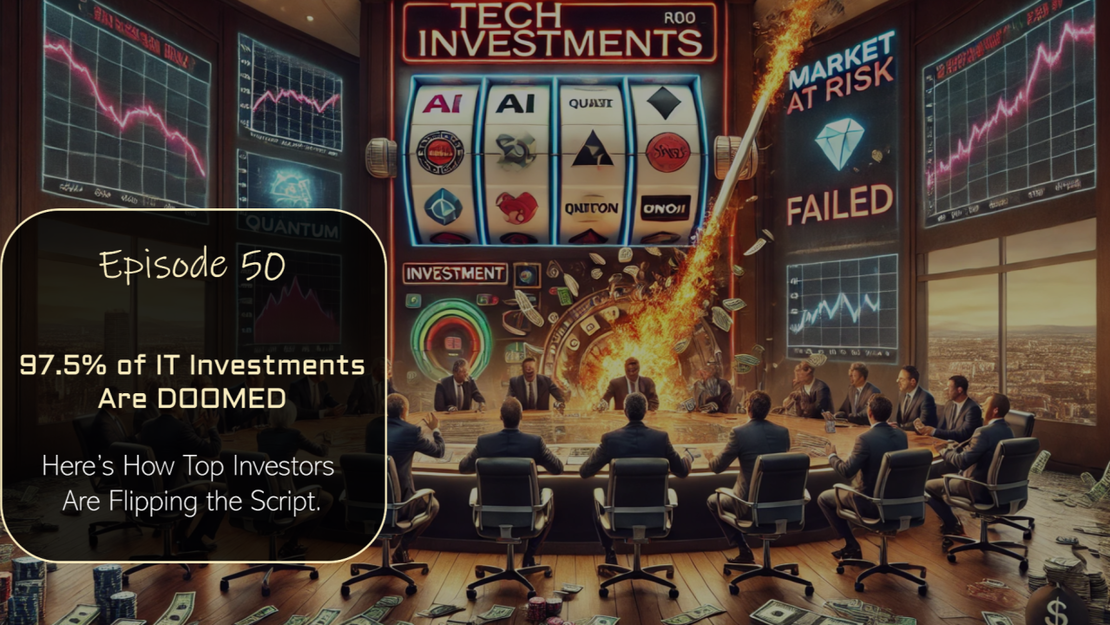
Hey there, digital warriors! ⚔️
Welcome to a new era of IT investment management! If you’ve been following along, you know that in Episode 49, we ripped the Band-Aid 🩹 off and exposed the brutal reality:
most companies fail to engineer unicorns because they get stuck in a vicious cycle of six dysfunctions that choke innovation and erode ROI.
At the root of it all? A lack of a universal standard for software excellence. Unlike finance, healthcare, or aviation, IT operates without a TÜV 🚫—no clear benchmarks, no enforced quality standards. This makes IT, and even more software development excellence a guessing game and triggers a devastating chain reaction:
elite talent scarcity (only 1% of developers truly know how to build software that scales, while the other 97.5% battle outdated practices, technical debt, and weak engineering mastery),
tolerance for mediocrity (defensive leadership, often not IT-savvy, breeds politics and stagnation, not out of malice but out of uncertainty—they simply don’t know what great software looks like, and without a guiding system, they default to the safest political plays instead of transformative action),
digital transformation theater (where 93% of initiatives fail, burning gigantic amounts of money for surface-level changes),
burnout & disengagement (tired of perpetual failures, 77% of employees check out, 38% hit burnout),
and blind faith in playbooks (hoping Agile, DevOps, or AI will magically fix deep-rooted dysfunctions).
The result? The board fractures, collusion spreads, and the company stagnates in mediocrity—leadership is under siege, investors scramble for a buyout before the ship goes down, and the dream of becoming a unicorn turns into mission impossible. Instead of engineering a scalable success model, the company flails, desperately latching onto the latest tech trend—like trying to catch a fly with chopsticks in true Karate Kid style, hoping for a miracle instead of designing one.
But let’s be real—hope is not a strategy. When leadership is too busy fighting for survival in the boardroom instead of fixing the sinking ship, mediocrity becomes inevitable. The only way out?
Engineering an elite culture, one behavior at a time.
The Unicorns’ Ecosystem is the result of applying 2 decades of research for excellence, rewiring organizations from the inside out, following the elite standards I witnessed in Formula1 🏎️. This isn’t about playing catch-up with the next digital trend; it’s about creating an ecosystem where high performance is the inevitable norm. Those who adopt it lead—those who don’t, fade into irrelevance like all the others Fortune 500 disappeared in the last two decades.
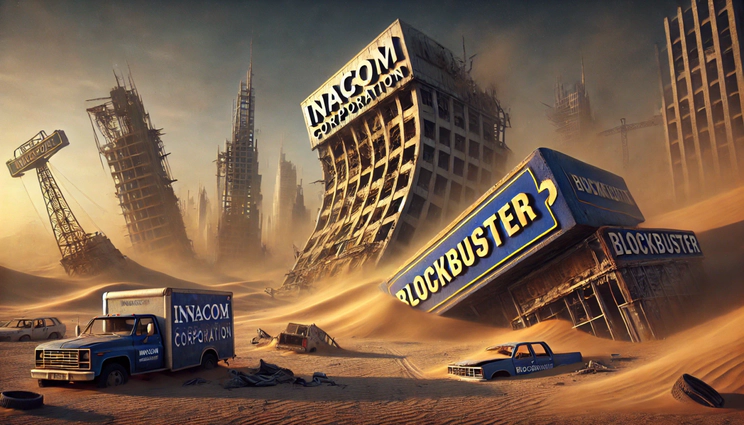
PE and VC firms pour billions into technology-driven companies, expecting scalability, efficiency, and high returns. But let’s be honest—most IT portfolios underdeliver. The numbers don’t lie: fewer than 1% of VC investments result in unicorns. AngelList data shows that a venture-backed seed-stage startup has only a 2.5% chance of reaching unicorn status, and even among those that do, over 80% experience valuation declines, with nearly 30% dropping below the $1 billion mark.
AngelList data shows that a venture-backed seed-stage startup has only a 2.5% chance (1 in 40) of reaching unicorn status. Even among those that do, over 80% have experienced valuation declines, and nearly 50% should be de-horned!
“While historically reaching Unicorn status indicated a promising level of success, with the current herd you may need to take a closer look 👀under the hood and see 🔎 if they have the true fundamentals of a Unicorn.” from this recent blog post by Justine Huang & Wiley Miller
🤔 Why? Because even the most seasoned investors—those we interviewed for our research, 50+ of the greatest IT investors with experience backing SpaceX, Airbnb, Uber, and Shopping.com before its eBay acquisition—admit that when it comes to early-stage investments, they rely on what can only be described as “emotional-data.” In the absence of a structured way to assess engineering mastery, investment decisions are often made based on gut feelings, charismatic founders, and compelling narratives rather than measurable software excellence. This works—until it doesn’t. By the time the first cracks appear—tech debt piling up, teams misaligned, governance structures failing, and developers disengaging—it’s often too late. Deadlines are missed, budgets balloon, and growth stalls.
The truth is, from day one, the ball is already rolling off the cliff of mediocrity. And the worst part? Nobody realizes it until they’re in freefall.
That’s where the Unicorns’ Ecosystem comes in, because:
“You can’t fix what you don’t measure 📊. And in IT, the real problem isn’t just code—it’s the behavior of those who build it, and the stakeholders around them."
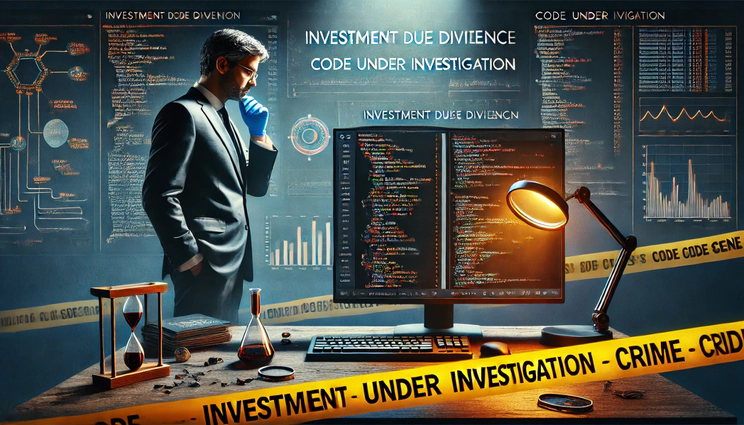
In today’s volatile digital landscape, PE/VC investors and CXOs are walking a tightrope over uncertainty. The fear of missing out on the next big disruption—AI, Quantum Computing, or the latest breakthrough—is pushing decision-makers into high-stakes gambles, with no structured way to measure or mitigate risk.
🚨 Here’s the brutal truth: The illusion of digital transformation creates a false sense of security. Quantum, AI, Agile, and DevOps alone won’t fix dysfunctional cultures, disengaged teams, and weak engineering mastery. They didn’t in the past, and they won’t now. Sure, they can alleviate symptoms, but they won’t address the core problem—an investment strategy built on fragile foundations, incomplete assessments, and a lack of true engineering governance.
💡 Think about this: Over the past two decades, how many companies have burned through massive budgets, chasing the next wave of tech, only to stagnate? Investors fear making the wrong bets. CTOs fear leading their companies into an AI-driven storm they don’t fully understand. The pain of failed investments, the anxiety of navigating an uncertain future, and the frustration of seeing money evaporate in failed transformations—it’s all very real.
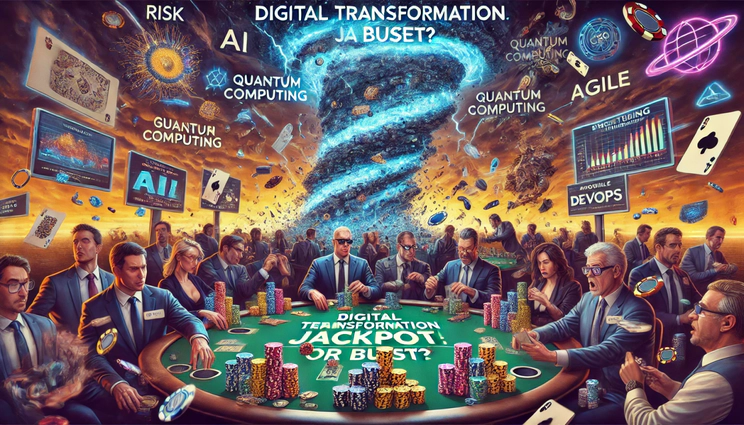
That’s why the Unicorns’ Ecosystem exists—not just as an idea, but as a proven, high-impact strategy that top PE/VC investors are already integrating into their portfolios. Our latest whitepaper, shared with over 50 of the most successful investors, has not only been embraced as a strategic weapon for portfolio enhancement, but they opted to leverage the research as a technical advancement for their portfolio and their companies working with us as Non-Executive Directors (NEDs) to support their CXOs, evolving 🌱 companies into elite 🏆.
It’s not another expensive illusion, but a structured, behaviorally engineered system designed to evolve 🌱 IT investments from high-risk liabilities into high-performance assets. Unlike digital transformation fairy tales that promise to turn a losing investment into a thriving unicorn, the Unicorns’ Ecosystem is rooted in hard-data & behavioral engineering reality.
Alchemists can’t turn copper into gold—just like digital transformations can’t turn a broken culture into a winning team. But it’ll certainly drain your cash and crush your teams’ morale in the process.
For the last 25 years, I’ve been on a relentless mission: to replicate the engineering excellence I witnessed in Formula 1 and MotoGP and bring it into IT.
🚀 It started in the early 2000s with Ferrari’s F1 team, where I had the privilege to observe, study, and absorb their relentless approach to iteration, refinement, and precision engineering. Ferrari’s mindset—engineering everything, optimizing every detail, and continuously improving—led Schumacher to five consecutive world championships.
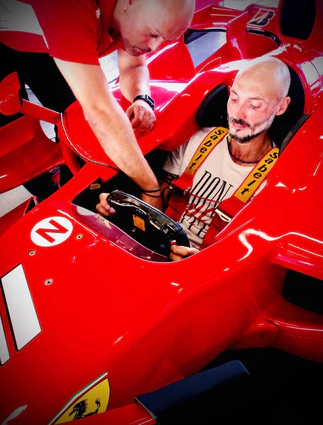
🏍️ Fast forward to today, Ducati is dominating MotoGP and SuperBike using the same data-driven engineering principles—precise tire management, real-time track monitoring, and the legendary NTB-01 Ducati Robot.
 NTB-01 and its father, Andrea Gorfer, Ducati MotoGP Electronics & Electronic Systems Designer. [Image by SmartWorld.it](<https://www.smartworld.it/tecnologia/lenovo-ducati-tecnologia-moto-gp.html>)](/images/blog/2025/EP50_TopInvestorsAreFlippingTheScript/Ducati_hu12446115991701891037.webp)
I studied these teams up close, analyzing their high-performance culture, data-driven decision-making, and behavioral discipline. But studying wasn’t enough. The real breakthrough came when I applied these principles to IT. At the beginning as experiments, but then as structured case study. That’s where I began cataloging every experiment, applying an hypothesis-driven methodology to IT technical excellence evolution—just like F1 engineers refine aerodynamics in a wind tunnel. Experiment after experiment, I gathered data, refined hypotheses, and iterated relentlessly.
A massive dataset that, over time, evolved into the state-of-the-art behavioral engineering system we have today: The Unicorns’ Ecosystem and it’s open source piece of the SW Craftsmanship Dojo®.
🏆 The same principles that drive F1 and MotoGP dominance—engineering, iteration, coordination, collaboration, and an unstoppable pursuit of mastery—are now engineered into IT. Just like in motorsport, winning isn’t accidental; it’s the result of a meticulously designed system where excellence is the only outcome.
👉 IT isn’t about chasing hype—it’s about engineering an environment where high performance is inevitable. In motorsport, the goal isn’t just to show up for a race—it’s to win the championship, season after season.
The Unicorns’ Ecosystem applies the same relentless discipline, ensuring that organizations don’t just compete in the digital era, but dominate it.
And here’s the final metric that should make every serious investor pause:
📊 Companies that evolved with us have seen measurable improvements in delivery performance, innovation velocity, employment engagement, customer satisfaction and ROI.
💸 Those who don’t? They remain trapped in cycles of mediocrity, watching their competitors speed ahead.
The choice is clear.
🚀 Embracing the Unicorns’ Ecosystem isn’t a gamble—it’s a strategic opportunity. That’s why our research, with its open-source version, is designed to empower organizations and investors to leverage IT value at scale, ensuring the world can break free from the alarming failure and disengagement rates we’re witnessing today.
The stark reality is that without a measurable, behaviorally engineered approach, companies will continue to haemorrhage money, talent, and market opportunities.
Jump onboard on the research to obtain a structured, data-driven foundation to:
✔️ Eliminate risk
✔️ Drive sustainable growth
✔️ Engineer a culture of excellence from day one
Do like the PE/VC opted in the research enhancing their SW driven portfolio:
STOP TRANSFORMING, START EVOLVING. 🚀
In Episode 49, we pulled back the curtain on how the Unicorns’ Ecosystem operates—evolving organizations from the ground up, embedding behaviorally engineered OKRs, and anchoring every action to technical excellence.
But here’s the real game-changer:
While others wait for quarterly board meetings to realize they’re sinking, we’re already course-correcting.
Why? Because we operate on a one-week light-speed feedback loop—a system designed to eliminate the lag of traditional decision-making and ensure organizations don’t just react, but evolve in real time.
This isn’t just about OKRs—it’s about engineering a system where behavioral change isn’t left to chance but scientifically optimized for impact. In Episode 46, we exposed why most OKR implementations fail—too often, they are just KPIs in disguise, vanity metrics that masquerade as strategy. The Unicorns’ Ecosystem does things differently:
🔬 Our OKRs are behaviorally engineered from the ground up, leveraging:
BJ Fogg’s Model to create sustainable behavioral change.
Cialdini’s Ethical Persuasion Framework to reinforce adoption.
Daniel Kahneman’s System 1 & 2 Thinking (yes, despite criticisms, we found that key aspects of this model work exceptionally well in behavioral design).
The result? A system that isn’t just aspirational—it’s operational.
In an era where AI and digital transformation hype blinds decision-makers, the antidote is a scientific, data-driven framework for high-performance evolution.
For the first time, some of the PE/VC investors who joined our research—the minds behind today’s tech companies—are stepping into our podcast interviews to share their insights, challenges, and why they’re integrating our open-source research into their investment strategies.
This isn’t just theory—it’s an insider’s perspective for high-performance IT investments.
We’ll dive deep into how investors are integrating our research and our NED (Not Executive Director) team into their portfolios, providing hands-on governance and direct support to their companies—not just at the board level, but inside their engineering organizations, upskilling teams through the SW Craftsmanship Dojo®.
This is the future of IT investment—hands-on, behavioral-science-backed, and engineered for success.
Stay tuned, because what’s coming next isn’t just a newsletter—it’s a movement reshaping IT investments across Europe and the U.S. 🚀
The question isn’t whether to evolve—it’s whether you’ll lead the revolution or be left behind. 🚀🔥
Contact us 📬 to talk about how we can turn your GenAI challenges into opportunities.
To stay in the loop with all our updates, be sure to subscribe to our newsletter 📩 and podcast channels 🎧:
🎥 YouTube
📻 Spotify
Visionary Digital Evolution Strategist
Rooted in Formula 1 excellence, with over 30 years in IT starting as a child in the 1980s, …